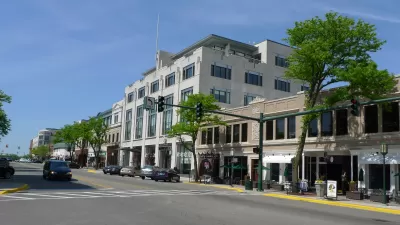The Users’ Guide to Code Reform leads planners through the code reform process, providing tools for governments lacking the capacity to develop a full form-based code. Susan Henderson and Matt Lambert hit the high points.
"The Project for Code Reform is one of the most important efforts we’ve had the privilege of contributing to in the last decade. We’ve spent most of our professional efforts crafting Form-Based Codes (FBC) for local governments, and while we still feel that is the zoning gold standard for placemaking, we realize FBCs are not accessible to many communities across North America for reasons of capacity—either staff or political. Increasingly, local governments want to align their zoning regulations with their goals for placemaking, incremental development, livability, and economic success. They realize conventional suburban standards have completely failed to solve for these issues; however, there are often gaps in political support, staff capacity, and budget to hire consultants for a major rewrite of their ordinances.
"When you consider the 42,000 units of local government in the US, and the vast majority with limited budgets and staff, the issue becomes how to deploy zoning reform broadly, with the least impact on capacity. While most current zoning-focused RFPs include form-based elements, and the spread of FBCs has accelerated, thousands of municipalities and counties continue to guide development with zoning that is antithetical to community goals. At present, analogous to tech start-ups, FBCs have a scaling problem: how can we accelerate the reform of existing codes by local governments in a politically and economically sensitive way?"
Henderson and Lambert go on to highlight alternatives, via their work with Project for Lean Urbanism's Lean Code Tool the Project for Code Reform's Users’ Guide to Zoning Reform.

FULL STORY: The Users’ Guide to Zoning Reform

Alabama: Trump Terminates Settlements for Black Communities Harmed By Raw Sewage
Trump deemed the landmark civil rights agreement “illegal DEI and environmental justice policy.”

Study: Maui’s Plan to Convert Vacation Rentals to Long-Term Housing Could Cause Nearly $1 Billion Economic Loss
The plan would reduce visitor accommodation by 25% resulting in 1,900 jobs lost.

Planetizen Federal Action Tracker
A weekly monitor of how Trump’s orders and actions are impacting planners and planning in America.

Waymo Gets Permission to Map SF’s Market Street
If allowed to operate on the traffic-restricted street, Waymo’s autonomous taxis would have a leg up over ride-hailing competitors — and counter the city’s efforts to grow bike and pedestrian on the thoroughfare.

Parklet Symposium Highlights the Success of Shared Spaces
Parklets got a boost during the Covid-19 pandemic, when the concept was translated to outdoor dining programs that offered restaurants a lifeline during the shutdown.

Federal Homelessness Agency Places Entire Staff on Leave
The U.S. Interagency Council on Homelessness is the only federal agency dedicated to preventing and ending homelessness.
Urban Design for Planners 1: Software Tools
This six-course series explores essential urban design concepts using open source software and equips planners with the tools they need to participate fully in the urban design process.
Planning for Universal Design
Learn the tools for implementing Universal Design in planning regulations.
Caltrans
Smith Gee Studio
Institute for Housing and Urban Development Studies (IHS)
City of Grandview
Harvard GSD Executive Education
Toledo-Lucas County Plan Commissions
Salt Lake City
NYU Wagner Graduate School of Public Service



























